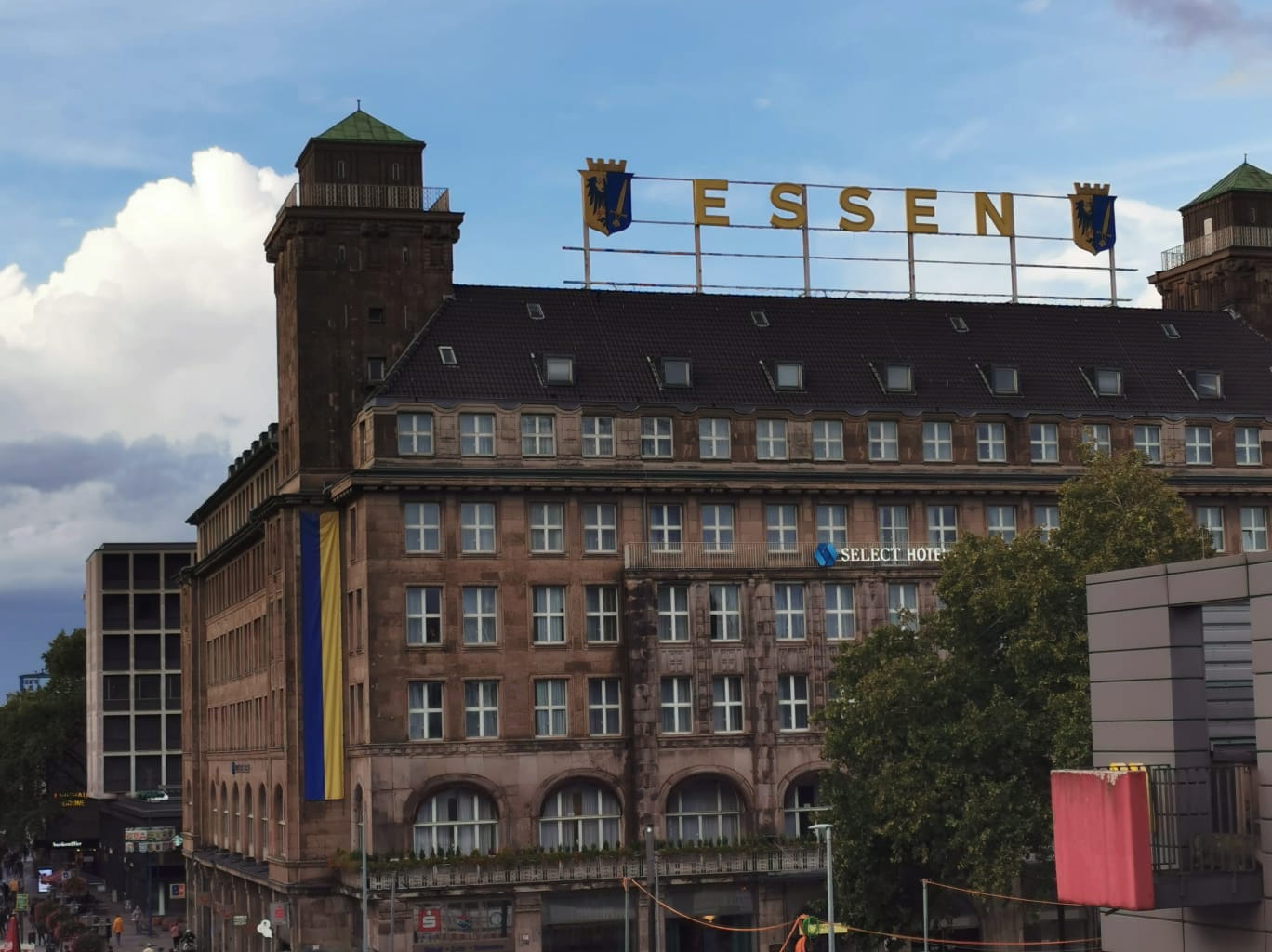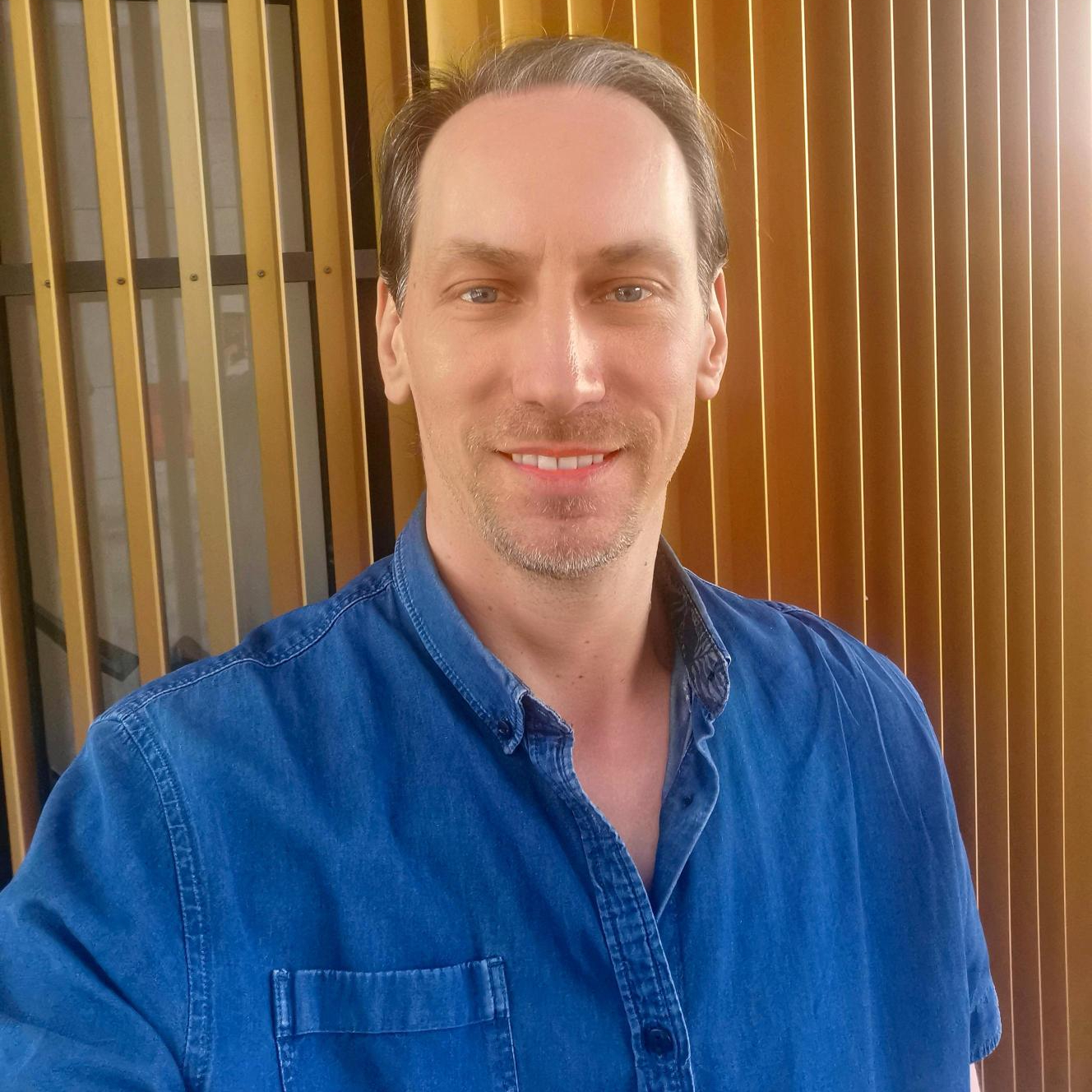Between 12th and 13th September 2025, the seventh edition of DrupalCamp Ruhr took place in Essen, Germany. It’s one of several DrupalCamps held regularly across the country and brings together the Drupal community from all over Europe. The camp is held in the Ruhr region, in western Germany, between Düsseldorf and Dortmund. This year, the event hosted more than 70 participants, featuring 2 keynotes, 26 sessions and discussions, get-togethers and one nerd quiz.

Arrival & First Impressions
I traveled by ICE from my hometown Wiesbaden to Essen and stayed at a hotel nearby. On Friday morning, I met a former colleague outside the hotel, and it was great to catch up. Together, we walked to the Unperfekthaus, the venue for the camp, where I also met a colleague from backend development who lives in Essen. It was really nice to see him again, and we started the day together with followed by the opening talk from the organizers. Since it was my first time attending DrupalCamp Ruhr, I immediately noticed the welcoming and friendly atmosphere of the Drupal community.

The Venue & Food
The Unperfekthaus was a very nice and cosy venue, with a beautiful roof terrace that added to the charm of the event. There was plenty of space for both larger sessions and smaller discussions, making it ideal for a community-focused camp.
Breakfast, lunch, and evening buffets were provided, and drinks were available throughout the day. The food was excellent, with many options for me as a vegan. Meals were also a great opportunity to chat with other attendees and make connections.
Sessions I Attended
I focused on sessions most relevant to frontend development, theming, and user experience:
Friday:
- Keynote: Drupal CMS Now and Beyond – Cristina Chumillas (ckrina) – A very insightful overview of Drupal’s current state and future direction. The keynote focused on component-based theming, editor improvements, and future plans for Drupal, all highly relevant for frontend developers.
- TYPO3 and Drupal in Comparison – Ingo Schmitt & Peter Majmesku – A concise comparison of TYPO3 and Drupal, highlighting community, theming and frontend approaches, configuration management, and deployment strategies. It was interesting to see how the two CMSs handle frontend technology stacks and design workflows.
- From Figma to Drupal Theme – A Modern Workflow Featuring Single-Directory Components and the New Display Builder – This session showed how to turn a Figma design into a clean, maintainable, and fast Drupal theme. Using tools like Single-Directory Components, Storybook, Vite, and the new Display Builder, it explained a component-based workflow that makes theming easier and more efficient.
- Bad Practices Showcase – Entertaining examples of common mistakes and how to avoid them in projects.
Saturday:
- Keynote: We Need to Talk About AI – Antje Lorch (ifrik) – Explored the role of AI in web development. Key points included how AI can assist content creation, affect workflows, ethical considerations, and ways Drupal projects might integrate AI tools. It was inspiring and thought-provoking
- Drupal AI Initiative – Baddy Sonja Breidert – Discussion on integrating AI into Drupal projects, relevant for content automation and editor workflows.
- Field Widget Actions: Bring Functionality Closer to Content Editors – Focused on improving editors’ experiences by streamlining content input and interactions, which also impacts frontend workflows.
- Advanced Accessibility Problems – Explored complex accessibility challenges and practical solutions. Topics included semantic HTML, ARIA roles, keyboard navigation, and real-world examples of common accessibility pitfalls.
- Revamp Transactional Email in Drupal Core – Klara Binon & Lorenz Schori – Drupal’s basic email system is being modernized. With Symfony Mailer in core and a new transport layer planned for Drupal 11.3, the next step is improving how emails are built and rendered.
Community & Engagement
DrupalCamp is not only about sessions, the community aspect was just as valuable. Conversations with other developers about frontend workflows, theming, accessibility, and AI integration greatly enriched the experience.
The Nerd Quiz was a highlight. Our team achieved third place, and I was happy to win the “MicroMacro: Crime City” game. It was fun, competitive, and engaging, and a great way to interact with other attendees.
Later, we had a get-together and after-hours event at Südrock, a cozy bar in Essen. Drinks, music, and conversations made it a perfect way to unwind and connect further with other participants.

Key Takeaways
- Component-based theming is essential: Modern Drupal workflows like Single-Directory Components and the new Display Builder make frontend development more maintainable and consistent with design systems
- Accessibility is critical: Advanced accessibility challenges and real-world examples showed how frontend developers can create inclusive, user-friendly experiences.
- Efficient design-to-implementation workflows save time: Converting Figma designs into Drupal themes efficiently ensures consistent and high-quality frontend results
- AI is becoming relevant for content workflows: Understanding AI’s potential in web projects can help frontend developers plan smarter automation and content tools
- Community collaboration is invaluable: Discussions, quizzes, and informal networking are essential for learning best practices and sharing practical knowledge
Conclusion
From Friday morning to the closing sessions on Saturday, DrupalCamp Ruhr 2025 was a rewarding and inspiring experience. I left Essen with new insights, useful contacts, and fresh motivation to apply what I learned.
It was also really nice to meet some former colleagues again, catching up and sharing experiences made the event even more enjoyable.
It was also my first time attending Drupal Days Ruhr, and I thoroughly enjoyed it. The event’s friendly atmosphere, diverse sessions, and strong sense of community made it truly memorable. I can highly recommend it to anyone in the Drupal ecosystem, whether you’re a developer, designer, project manager or just curious about open-source collaboration.

